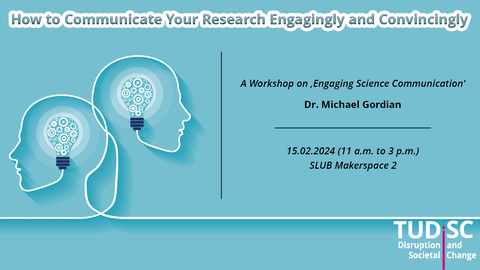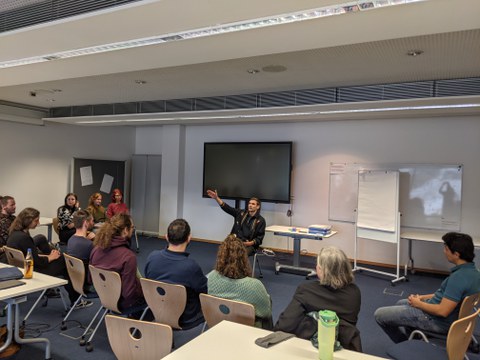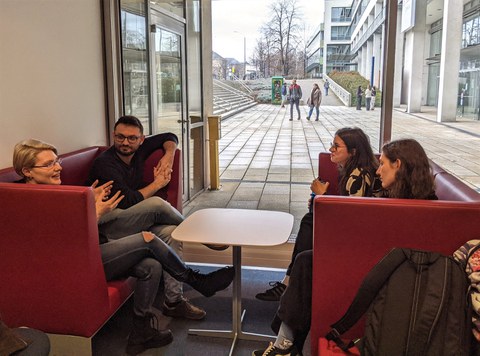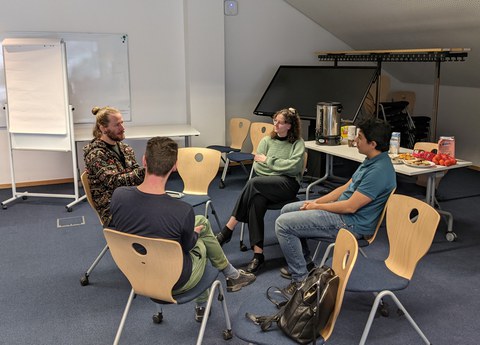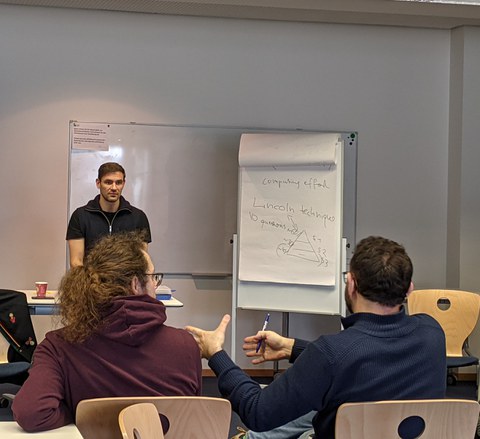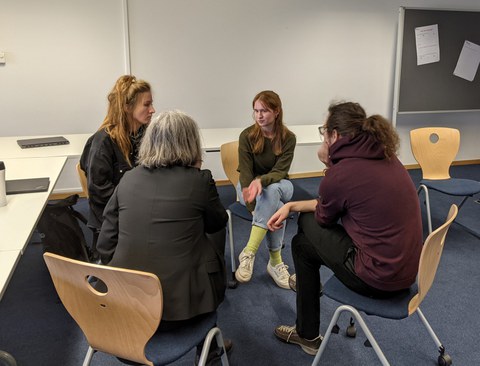20.02.2024
Workshop Retrospect | Engaging Science Communication
In the noisy world of 24/7 news and social media platforms pinging updates to our phones every minute, it can be difficult for even the most well-executed and innovative research to get attention. A key component therefore, in the project management of any research undertaking, should be a well-planned communications strategy. With this in mind, on February 15, 2024, young researchers from across multiple disciplines at TUD came together for a short workshop with Dr. Michael Gordian on how to communicate research engagingly and effectively.
The workshop began with a brief overview on how best to approach the introduction segment of a presentation. Different concepts and approaches were discussed, with explanations given on how they can be useful and in which settings.
This exchange culminated in a group-based exercise, in which participants were tasked with practicing a one-minute pitch of their line of work without jargon or complex language, as if pitching to a ten-year old. Once these were presented, there was an extensive round of feedback and exploration of alternative methods. This included, but was not limited to, discussion on the approach of storytelling, in particular the narrative arc and scene setting. Moreover, emphasis was also placed on the effectiveness of figurative language and comparisons in bringing complex, abstract issues to life.
After a short lunch break, Dr. Gordian spent some time sharing ideas on how to structure a presentation based on the use of engaging questions, and underscored how there should be a hierarchy of importance, with 60% of the questions focused on targeting the audience members one wishes to reach most.
The workshop was then rounded off with a quite unique exercise aimed at building self-confidence through a focus on body language and tone of voice. To practice this, the participants were asked to “present” random numbers, in order to strip the presentation of the distraction of the content and any attachment one may have to it.
The workshop was an enjoyable and thought-provoking glimpse in to the theory and practice of communication, and we are excited to further explore this area of the research process in future, in order to give the excellent work here the best chance of having the impact it deserves.
